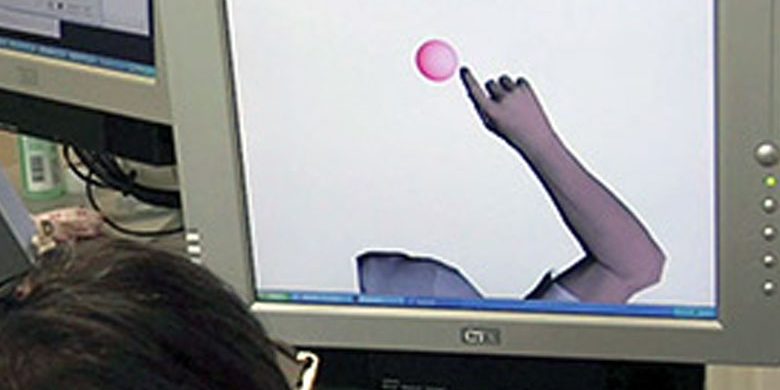Doctors will attempt to reanimate a patient’s paralyzed arm with a pioneering surgery that involves capturing signals from his brain and restoring movement through a fine network of electronics linked to arm muscles.
The new effort, being planned by researchers at Case Western Reserve University, will use a brain computer interface, or BCI, developed by researchers at Brown University and Massachusetts General Hospital. In previous work, patients have used this interface to control a computer cursor or a robotic arm.
The new effort will use the same technology to control the patient’s actual arm with a system called functional electrical stimulation (FES). This will send signals to as many as 18 arm and hand muscles to allow the subject, who is paralyzed from the neck down, to perform tasks such as eating and nose-scratching.
Read the full article







